Australian neo-Pentecostal perspectives on anthropogenic climate change
By Mairead Shanahan

As the seriousness of the human impact on a changing global climate becomes evident, many religious movements are developing theological responses to such ecological issues. As one of the fastest growing Christian denominations on the globe, Pentecostal and Charismatic churches are now formulating theological positions on anthropogenic climate change. Australian neo-Pentecostal churches such as Hillsong, C3 Church, Planetshakers and Influencers Church, are part of this global Pentecostal Charismatic movement. These Christian churches emphasise receipt of spiritual gifts as evidence of salvation; blessings can take the form of glossolalia (speaking in tongues), healing and prophesy interpretation.
The Australian neo-Pentecostal churches main organisational goal is to grow their churches through evangelistic techniques, which use contemporary worship music and state-of-the-art technological means to attract congregants. Hillsong claims to have ‘an average global attendance approaching 100,000 weekly’, while C3 Church states:
“With over 450 churches in 64 countries, we are rapidly moving towards the 2020 Vision of 1,000 churches planted by the year 2020.”
Influencers Church and Planetshakers are expanding their ministries globally, setting up churches in the USA, Pacific Islands and South Africa in the last few years alone. The Australian neo-Pentecostal churches are rapidly growing religious organisations who have voiced their opinions on global issues including the war in Syria, global sex-trafficking networks, and combating poverty. So, what might they have to say about anthropogenic climate change and other global ecological issues?
Analysing Australian National Church Life Survey data, Pepper and Leonard (2013: 46) found that it is “Pentecostals and Protestants from the smallest Protestant denominations and independent churches who stand out as being least likely to hold the view that climate change is anthropogenic.” Australian neo-Pentecostal theology supports this. The Australian neo-Pentecostal churches’ theological orientations are human-centric. They believe that nature exists to remind humans of God’s love. After appreciating the abundance of animal life on earth in a blog post titled ‘Creation Shouts!’, the Senior Pastor of C3 Church, Phil Pringle wrote:
“[a]nd then man himself, with all the glory of his intelligence, his dance, songs, art and rhythms, discoveries, inventions and adventures.”
Pringle implies that humans are the pinnacle of God’s creation and continues, saying:
“creation reveals a creator who loves, in the colors, the scents, the nutrition yet not purely utilitarian, but beautiful in taste, scent and feel. The rains, the sun, the oceans, the mountains, the sheer breathtaking pleasure of the beauty of it all is love.”
The Australian neo-Pentecostals see God as a source of infinite grace and love. Lyrics for the Hillsong’s 2007 song ‘God of All Creation’ state: “I’m totally abandoned to You/I’m lost inside the rivers of your love.” The totality of the abandonment signifies the infinite nature of the relationship between God and people, while the river metaphor implies that environmental phenomena exist as all-encompassing reminders of God’s love for his people. Evoking the natural environment in the context of God’s love is evident in other Hillsong titles including ‘Oceans (Where Feet May Fail)’, ‘Touch the Sky’, and ‘Desert Song’. In ‘Shout to the Lord’, one of Hillsong’s first chart-topping songs released in 1994, the lyrics are:
“Shout to the Lord, all the earth, let us sing/Power and majesty, praise to the King/Mountains bow down and the seas will roar/ At the sound of Your name.”
For the Australian neo-Pentecostals, nature signifies God’s love for humans.
Within this depiction of God as creator and the natural environment as evidence of God’s love, people are seen as stewards of God’s creation; responsible for the maintenance and development of the natural environment. In a Sunday sermon broadcast on the Australian Christian television channel Planetshakers, Senior Pastor Ashley Evans says that “God’s plan is for us to have dominion”. This interpretation of creation stewardship places humans at the top of the ecological hierarchy. God creates life on earth and humans are the stewards of the natural environment, while at the same time humans hand true control of creation over to God. The key to understanding what Australian neo-Pentecostal churches believe when it comes to climate change lies in these wider views on creation care. God may have appointed humans for stewardship over living things, but what exactly care for God’s creation entails is up to interpretation. Several Australian neo-Pentecostal leaders have links to mining companies, energy providers, and property developers. Lucas Jacometti, Pastor of the C3 Church in Hobart, says in a sermon on climate change scepticism:
“Only Jesus has the power to shift the climate.”
In 2016, the Tasmanian newspaper The Mercury reported that Jacometti, in partnership with oil prospector Malcolm Bendall, wants to develop the Tasmanian central highlands into an oil reserve. Jacometti lobbied state and federal members of parliament, government departments, and public servants to get oil exploration on the Tasmanian state agenda. For Jacometti, natural resources are there for humans, as the stewards of creation, to use as they see fit because in his justification Jesus is the one who will take care of the climate. While the Australian neo-Pentecostal churches remain unforthcoming in their specific views on anthropogenic climate change, when these churches discuss creation stewardship they appear to support the view that God will take care of the climate. Human responsibility for ecological issues does not enter into their interpretation of how best to care for God’s creation.
The Australian neo-Pentecostal endorsement and support of consumer capitalism points to their political leanings and are a further key to their views on climate change. The churches see the role of the state as minimal, and success in the business sphere, without the help of the state, is central to their vision of the ideal Christian life. In a 2014 debate on implementing a federally mandated carbon emissions pricing scheme in Australia, the Liberal National Party (the centre-right Australian political party consisting of a shared power arrangement between the Liberal Party and National Party) vehemently opposed such a policy. Australian neo-Pentecostal church leaders are often in the company of prominent Liberal Party politicians. In 2004, Prime Minister John Howard of the Liberal Party opened the Hillsong Church purpose-built campus in Sydney. While federal Treasurer, Peter Costello, also of the Liberal Party, spoke at the 2005 Hillsong Church annual conference, sharing the church’s stage with cabinet colleagues Alexander Downer, Helen Coonan and Kevin Andrews. The Family First Party—known for conservative policies and an anti-anthropogenic climate change position—was founded by Andrew Evans, ex-pastor of the oldest Pentecostal church in Australia, Paradise in Melbourne. He is also the father of Influencers Church senior pastor Ashley Evans and Planetshakers senior pastor Russell Evans. At a C3 Prayer Breakfast held in Sydney in 2015, Phil Pringle praised the development occurring in the Sydney Central Business District. New South Wales Premier Mike Baird of the Liberal Party nodded along as Pringle said ‘It’s so good to see so many cranes in the sky, it felt for a while like all the money was heading to Brisbane and Melbourne’ (Shanahan 2015). The Baird government privatised a range of public services in New South Wales during its term and subsidised farmers to not replant forests, which would have reduced greenhouse gas emissions.
In general, the Australian neo-Pentecostal church leaders support politicians who develop political environments conducive to business while reducing the role of the state in government. These are the same politicians who do not accept that human activity affects the global climate. From an analysis of their theology and the political company they keep, it is evident that neo-Pentecostal churches are content to leave global ecological issues up to God. They believe that God loves humans and, ultimately, humans can do what they like with natural resources, because God will take care of the global climate.

Mairead Shanahan is a PhD student in the Department of Modern History, Politics and International Relations at Macquarie University Sydney. Her research interests include sociology of religion, religion and modernity, and Pentecostal studies. More specifically, her work examines the ways in which Australian neo-Pentecostal churches incorporate elements of modernity in their theology and operations.
References
Pepper, M, Leonard, R & Powell, R 2013, ‘Denominational Identification, Church Participation and Concern about Climate Change in Australia’, in A. Elvey (ed.) Climate Change—Cultural Change: Religious Responses and Responsibilities, Mosaic Press, Melbourne.
Shanahan, M 2015, C3 Prayer Breakfast 2015, 20 November 2015 participant observation, information available at <http://www.sydneyprayerbreakfast.com.au/events/sydney-prayer-breakfast-2015/>.
